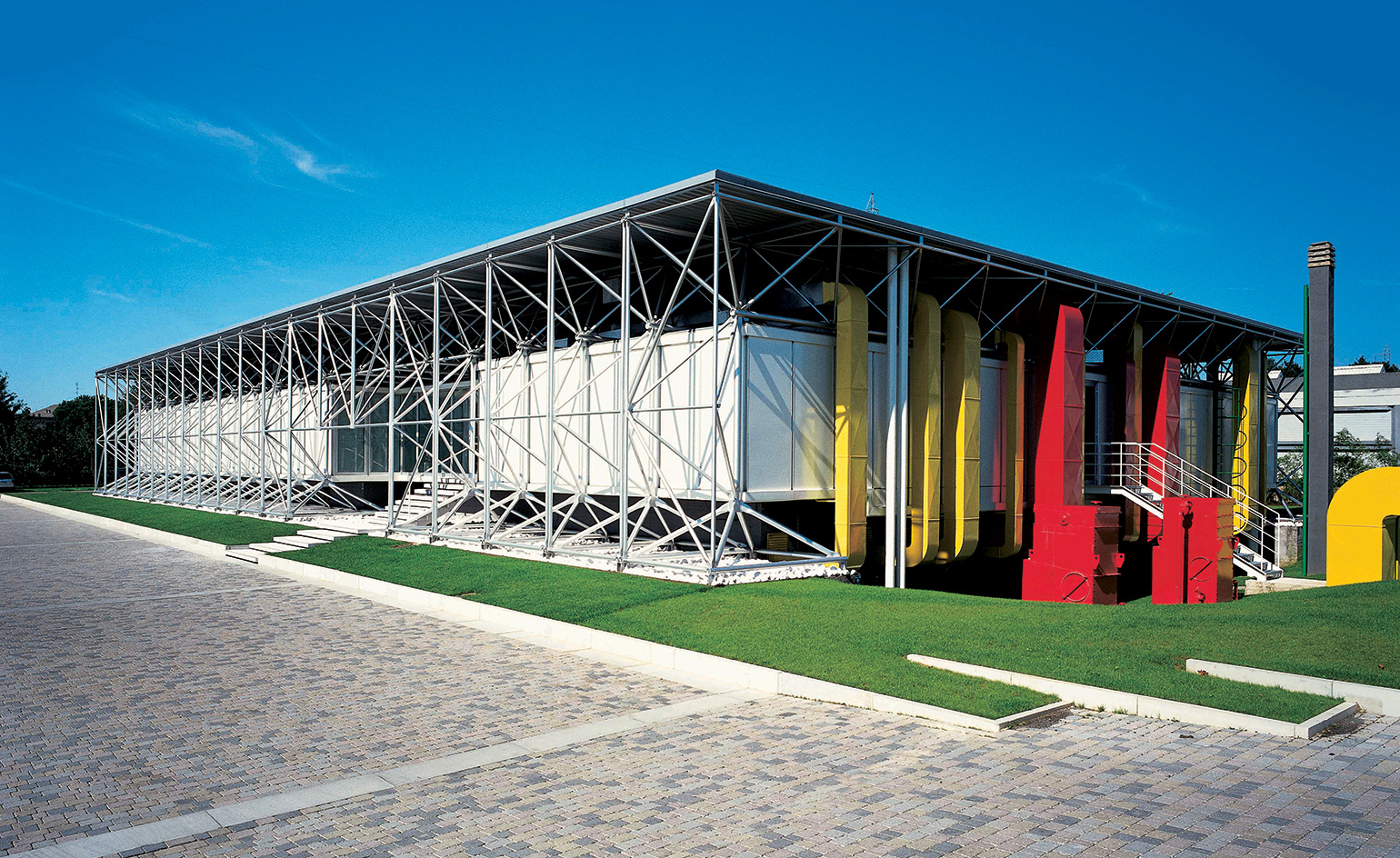Design doesn’t give up! Italian furniture brands come together in solidarity
Nine key Italian furniture brands, B&B Italia, Bisazza, Boffi, Cappellini, Cassina, Flexform, Giorgetti, Molteni Group and Poltrona Frau, sign a document that focuses on the importance of resuming production

Receive our daily digest of inspiration, escapism and design stories from around the world direct to your inbox.
You are now subscribed
Your newsletter sign-up was successful
Want to add more newsletters?

Daily (Mon-Sun)
Daily Digest
Sign up for global news and reviews, a Wallpaper* take on architecture, design, art & culture, fashion & beauty, travel, tech, watches & jewellery and more.

Monthly, coming soon
The Rundown
A design-minded take on the world of style from Wallpaper* fashion features editor Jack Moss, from global runway shows to insider news and emerging trends.

Monthly, coming soon
The Design File
A closer look at the people and places shaping design, from inspiring interiors to exceptional products, in an expert edit by Wallpaper* global design director Hugo Macdonald.
Earlier this month, nine Italian furniture companies came together to draft a manifesto calling for ‘a return to normality’, in an effort to save the industry amid a complicated national situation. Titled ‘Design Doesn’t Give Up’, the text considers the global impact of the current COVID-19 pandemic, asking the country’s government to allow factories to operate, and for production to start again.
This is the first time the Italian furniture industry has come together in this way, demanding action with a unified voice. An initial conversation between a few executives turned into ‘a fervent digital round table, involving some of the most important companies in the sector’, the manifesto reads.
Signed by CEOs and executives from B&B Italia, Bisazza, Boffi, Cappellini, Cassina, Flexform, Giorgetti, Molteni Group and Poltrona Frau, the document focuses on the importance of resuming production.
Together, furniture and design constitute one of the main areas of Italian production. With over 20,000 companies and a 130,000-strong workforce, the sector generates a 23 billion turnover with exports exceeding 60 per cent. These numbers grow exponentially when considering that these factories collaborate with a vast network of local suppliers, employing over 315,000 people regionally, with an estimated turnover of 43 billion.
Mankind is the fundamental element behind this process
The statement recognises the difficult decisions the Italian government has been forced to make in the past few months, and respects the importance of making their teams’ safety a priority. ‘Health comes first’, they note, listing a series of practical measures taken in all factories to ensure the safety of staff. The group has already taken some further crucial steps to overcome the peculiar situation, composing a document to demand a rent moratorium for commercial properties, and creating a task force especially trained to manage all aspects of the crisis.
When considering the repercussions of thousands of order cancellations, they explain that ‘the recovery, when it occurs, will be characterised by a very low backlog and a severely deteriorated financial situation.’ For many companies, they continue, it might mean permanent closure, which will result in the country losing a significant portion of its industrial heritage. ‘It could take 20, 30 years to recover what we would lose in a few weeks,’ they state.
Some of our companies are now centuries old. During this long period of time the world has significantly transformed: new products, new markets, new consumers
A partial solution to these dramatic consequences lies in the reopening of the factories, which has now been requested for 20 April. ‘We can still make up for this delay,’ the manifesto reads, ‘by reopening and working hard in the next few months. Our customers choose us for the beauty and quality of our products, they will be understanding and wait.’
Receive our daily digest of inspiration, escapism and design stories from around the world direct to your inbox.
Finally, they stress the importance of the people operating within the industry. ‘A diligent and prosperous social belonging is also based on the fruitful participation in working life and the consequent industrial progress of the country,’ they write. ‘Mankind is the fundamental element behind this process.’ They celebrate the sector’s employees as as the driving force that allowed the industry to prosper globally: ‘production takes place mainly thanks to the extraordinary contribution of women and men who everyday conceive and create superior products […] that customers all over the world aspire to.’
‘Some of our companies are now centuries old. During this long period of time the world has significantly transformed: new products, new markets, new consumers. This impressive evolution was only possible thanks to the extraordinary people who honoured and supported us with their precious everyday work,’ they conclude with a hopeful note. ‘And it is to our craftsmen, workers, office employees and managers that we dedicate our utmost effort to be able to reopen and start again stronger than before, in the knowledge that only united we can continue to thrive in the time to come.’
Rosa Bertoli was born in Udine, Italy, and now lives in London. Since 2014, she has been the Design Editor of Wallpaper*, where she oversees design content for the print and online editions, as well as special editorial projects. Through her role at Wallpaper*, she has written extensively about all areas of design. Rosa has been speaker and moderator for various design talks and conferences including London Craft Week, Maison & Objet, The Italian Cultural Institute (London), Clippings, Zaha Hadid Design, Kartell and Frieze Art Fair. Rosa has been on judging panels for the Chart Architecture Award, the Dutch Design Awards and the DesignGuild Marks. She has written for numerous English and Italian language publications, and worked as a content and communication consultant for fashion and design brands.